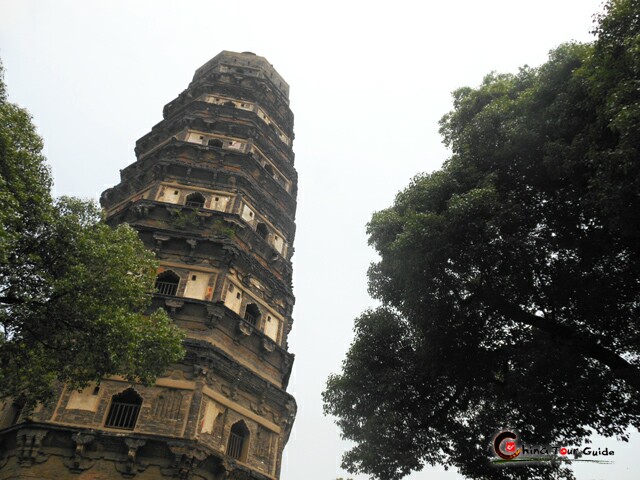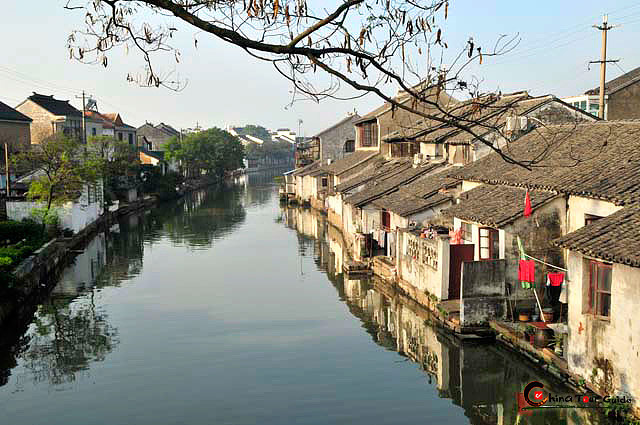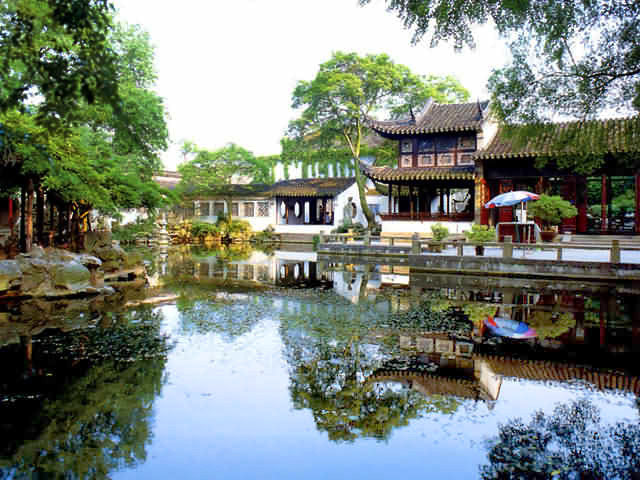Local Suzhou Tours
Tongli Water Town
Tongli Water Town is located on the southern outskirts of Suzhou and about an hour drive from Shanghai. With a history of over 1000 years, Tongli has recently become a tourist attraction. Its chief claim to fame is a system of canals reminiscent of Venice.
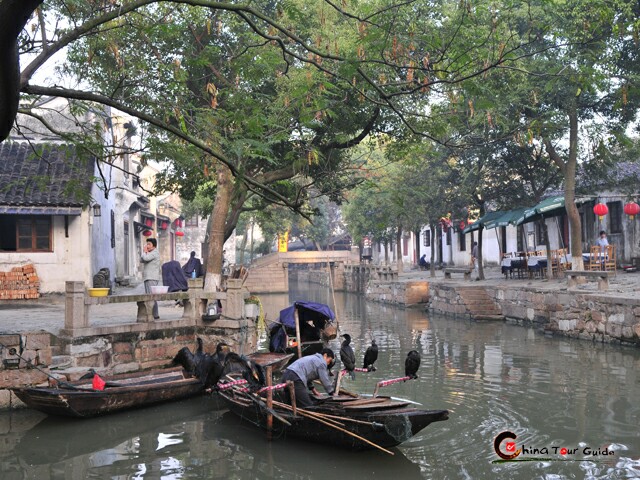 |
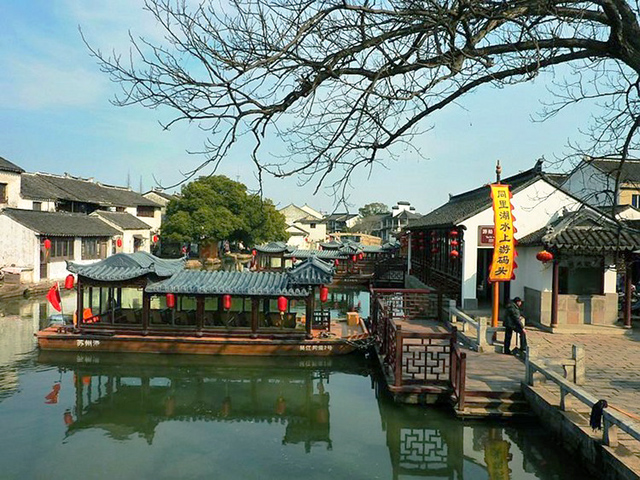 |
| Cormorant boats | Serene Tongli Water Town |
With a network of lakes and waterways, Tongli was inaccessible in ancient times and therefore has survived without the war damage that many other places suffered. Therefore a number of ancient structures are preserved including a number of scenic stone bridges, private gardens, temples, and houses.
Fifteen small river lanes crisscross the town. Spanning these creeks are forty-nine stone bridges with all kinds of styles and looks. The three most famous bridges are the Taiping (peace), Jili (luck), and Changqing (celebration) bridges. These have served as distinct landmarks for centuries and are widely regarded as sacred architecture by the locals. On special occasions, such as weddings, people like to ceremoniously parade across the three bridges. This ritual is supposed to bring peace, fortune, and happiness in their lives.
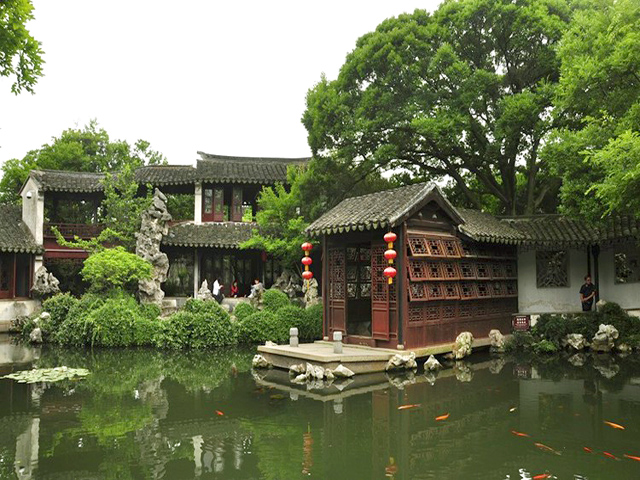 |
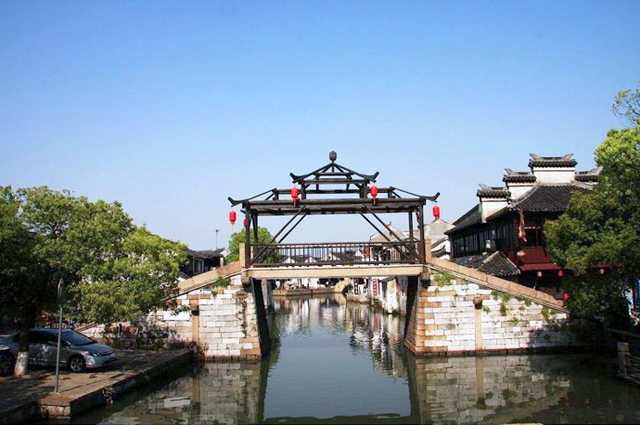 |
| Tuisi Garden | An iconic bridge |
Forty percent of the buildings in the town are some hundreds of years old, built during Ming or Qing dynasty. A gateway with a brick carving of the Zhu Family and the wood carvings of the Chong Ben Hall & Jia Yin Hall are exquisite. The Tuisi Garden is a good example. The garden was constructed between 1885 and 1887 by a scholar/official. The garden is full of pavilions, terraces, halls, rockeries, ponds, and other elements each designed as one part of a harmonious whole.
For its long history and special beauty, Tongli, along with Luzhi Water Town and Zhouzhuang Water Town, were listed in the tentative list for UNESCO World Heritage Sites in 2004.
Select Other Suzhou Attractions
Recommended China Tours with Suzhou
|
||||||
|
||||||
|
||||||
|
||||||
|
||||||
|
||||||
Guide for China tour, offers most value & amazing experience. In China, you can rely on us
Copyright © 2001 - 2025. All Rights Reserved to ChinaTourGuide.Com
Hotel Guangzhou | Guizhou Tours | Hong Kong Hotels | 香港酒店 | 广州酒店 | 广州会议酒店 | Indochina Tour
Guide for China tours, offers most value & amazing experience. Chinatourguide.com. Your reliable China tour agency.

